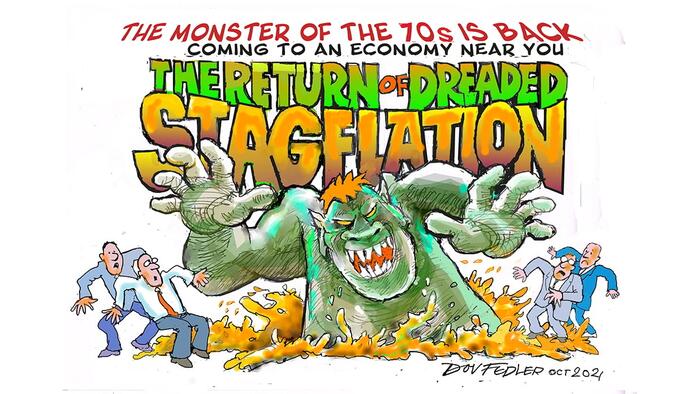In a recent analysis on SchiffGold.com, Peter Schiff discussed the troubling economic data released last week, particularly highlighting the significant miss in the nonfarm payroll report, which fell far below market expectations. This scenario presents a dire challenge for the Federal Reserve, especially with rising political pressure and an impending election. Schiff argues that the Fed is in a precarious position, tasked with managing the competing challenges of persistent inflation against the backdrop of a softening labor market. His conclusion is stark: the Fed is ill-equipped to tackle both issues effectively, and their attempts at monetary policy adjustments may only exacerbate the situation.
The broader discourse around the health of the U.S. economy has been murky, with many in the media and political sphere claiming a cooling but still stable economic landscape. However, Schiff counters this narrative, pointing to a range of disappointing economic indicators and downward revisions to significant data. He emphasizes that voter sentiment reflects a growing discontent with the current administration’s economic policies, as many Americans are unconvinced by claims of a thriving economy. He argues that such disillusionment is a critical factor leading to calls for change, as many constituents acknowledge the reality of a weak economic framework possibly teetering on the edge of recession and stagnation.
This sentiment is heightened by the Fed’s precarious strategy of cutting interest rates. Schiff notes that rather than producing the desired effects, these cuts have inadvertently resulted in rising long-term rates, signaling deepening concerns among bond investors regarding government debt. He cites the shockingly low job growth figures—where anticipated job additions of 125,000 plummeted to just 12,000—as further evidence supporting his thesis. The mixed signals from the labor market and rising government debt are not only disconcerting but also validate Schiff’s warnings about the impossible balancing act the Federal Reserve must now navigate.
Compounding economic pressures is the upcoming election, where Schiff predicts increased political influence over Fed policy. With prominent figures in the political arena potentially pushing for more aggressive monetary stimulus, the Fed is likely to face overwhelming pressure to adopt a path of quantitative easing. According to Schiff, failing to address rising inflation while simultaneously attempting to bolster a sagging economy will produce dire consequences: the Federal Reserve will have to ultimately choose which crisis to tackle, with political forces likely compelling a focus on economic stimulus at the risk of mounting inflation.
Shifting to campaign dynamics, Schiff also analyzed the fluctuations in the betting markets surrounding Trump’s candidacy. Noting a significant drop in speculative sentiment toward Trump, he argues this is less about a shift in public opinion and more a reflection of traders adjusting their investments. As sentiment in the markets adjusts, key shifts in candidate betting may not signal genuine volatility in support but rather a necessary profit-taking maneuver among traders covering their positions. This perspective reveals a complex interplay within campaign dynamics that the public may misinterpret.
In a final segment focusing on the broader implications of the election and economic policies, Schiff offered a sobering assessment regarding Trump. Despite being a proponent of Trump’s candidacy, he refrains from heralding Trump’s economic record as exemplary, instead stressing that various economic indicators worsened during his first term. Schiff takes a balanced stance, asserting that while Trump represents a significant avenue for addressing current political dysfunction, it is vital to acknowledge past shortcomings rather than romanticizing his presidency. He emphasizes that understanding the full context of economic policies is crucial for effectively addressing the challenges the U.S. currently faces. As the election approaches, Schiff encourages a realistic appraisal of past performance in order to better navigate future policy decisions.

